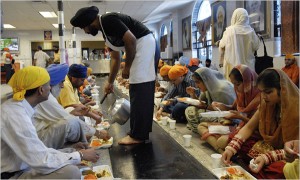
Today marks the 82nd birthday of Reverend Dr. Martin Luther King, Jr. Most of us learn about Dr. King’s influential role in the Black Civil Rights Movement in the United States, and have heard his “I have a dream” speech. But less do we hear about his opposition to the Vietnam War and his revolutionary calls for an end to U.S. militarism, calling his government “the greatest purveyor of violence in the world today.” As a man who was deeply driven by spiritual motives who used religious institutions to organize millions, Dr. King is a constant inspiration to me, and I hope to other Sikhs.
Check out the below video to hear his powerful and righteous “Beyond Vietnam” speech from April 4, 1967, exactly one year before he was murdered.
I am convinced that if we are to get on the right side of the world revolution, we as a nation must undergo a radical revolution of values. We must rapidly begin…the shift from a thing-oriented society to a person-oriented society. When machines and computers, profit motives and property rights, are considered more important than people, the giant triplets of racism, extreme materialism, and militarism are incapable of being conquered.
I love food. I love to cook. I love to gather with friends, community, and sangat and share a meal together.
Because food it our most primal need and our common bond to the earth and one another, it can ground us as we stretch ourselves to draw in all the interlaced threads—so we can weave a whole, meaningful picture for ourselves. I still believe food has this unique power. With food as our starting point, we can choose to meet people and to encounter events so powerful that they jar us out of our ordinary way of seeing the world, and open us to new, uplifting, and empowering possibilities. – Frances Moore Lappe and Anna Lappe, from Hopes Edge: The Next Diet for a Small Planet
The Sikh institution of langar has always been something near and dear to me, partially because of my borderline obsession with food, but also because it really gets to the heart of Sikhi. The practice of langar, our free community kitchen, was started some 500 years ago by Guru Nanak to meet a basic human need – eating – and to create a space for community-building that reflected the Guru’s radical vision of equality. Rules about food preparation and eating were (and still are) one of the central ways that caste oppression was enforced. Langar turned this all on its head. With everyone sitting together on the same level (on the floor) and eating the same simple food, which was prepared by people from all caste backgrounds, langar was nothing short of a revolutionary accomplishment.
It is with this lens that I want to discuss the food of langar itself.
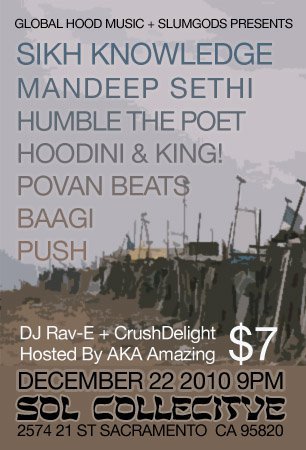 So, in the new year we’ll be bringing about some changes to TLH and we hope that one of these changes will be a better way of highlighting events happening in and around North America.
So, in the new year we’ll be bringing about some changes to TLH and we hope that one of these changes will be a better way of highlighting events happening in and around North America.
In the meantime, for our California Langar Hall family, you can catch Sikh Knowledge + Mandeep Sethi + Humble the Poet + Hoodini & King! + Povan Beats + Baagi + Push at Sol Collective on December 22nd starting at 9pm. The event will be hosted by the very funny AKA Amazing.
Please view the facebook event page here and a video below highlighting many of these artists. The video is filmed by the very talented, Digitology.
 The Chair of the US House of Representatives Foreign Relations Committee, Rep. Howard Berman, is trying to push a resolution through Congress today “condemning unilateral declarations of a Palestinian state.”
The Chair of the US House of Representatives Foreign Relations Committee, Rep. Howard Berman, is trying to push a resolution through Congress today “condemning unilateral declarations of a Palestinian state.”
The United Nations has long recognized the sovereignty of the Palestinian people in the Occupied Palestinian Territory, including East Jerusalem as a matter of international law. Since 1975 the UN has recommended that the Palestinian people be able “to exercise their inalienable rights to self-determination, national independence and sovereignty; and to return to their homes and property.”
There is growing consensus around the rest of the world in support of Palestinian sovereignty and statehood, yet two countries stand in the way: Israel and its fiscal sponsor, the United States.
I just received notice from the US Campaign to End the Occupation about this horrifying resolution that will be voted on today.
Though Sikhs have settled all around the world, roughly 20 million Sikhs still reside in Punjab. There, and elsewhere, Sikhs are facing serious problems including, but not limited to: farmer suicide, female infanticide, drugs and alcohol abuse, domestic violence, economic disasters, disease, poverty, illiteracy, and much more. [Lahir Press Release]
Many of my most recent posts have been about upcoming events happening in the Sikh Community. I think this is a positive sign – that rather than idly discussing and debating issues that inflict our panth, we are actually doing something about it! I would like to highlight two upcoming events occurring in North America. These platforms will bring together talented youth to raise awareness and by doing so, will aim to address important issues within our community. Please support these endeavors so that we can continue to move our panth in the right direction.
Lahir: Save Punjab. Save Ourselves | New Jersey | November 20th | 6pm
Lahir: Move the Movement 2010 is a night of spoken word, poetry, music, and the arts. Artists will include G.N.E., Hoodini, Mandeep Sethi, Gunjiv “Baagi” Singh, MC G-Singh and Humble the Poet. The event will kickoff the movement to respect and protect Punjab by donating all profits to the Baba Nanak Education Society (BNES), an organization which provides humanitarian assistance in rural Punjab to next of kin of suicide victims. These are families with small children left completely destitute by the death of bread-winners and have been neglected by the government. A donation of approximately $350 can help support one family for a year. For more information, visit the facebook page.
I just came across this great campaign to urge the American public to stop calling immigrants “illegals.” Brought to us by the racial justice media organization Colorlines, the “Drop the I-Word” Campaign website states, “The I-Word creates an environment of hate by exploiting racial fear and economic anxiety, creating an easy scapegoat for complex issues, and OK-ing violence against those labeled with the word.”

Today we remember human rights activist, Jaswant Singh Khalra. Jaswant Singh Khalra discovered cremation records that proved Indian security forces illegally killed thousands of Sikhs in the 1980s and 1990s. Khalra connected the police to the disappearances of over 2,000 Sikhs in Amritsar district, located in the northwestern Indian state of Punjab. The police allege they lawfully killed the Sikhs in “encounters”, or in an exchange of gunfire. Khalra’s investigations, however, demonstrated that these Sikhs had been abducted by the police, killed in custody, and then secretly cremated as “unidentified/unclaimed” bodies at various municipal cremation grounds. The municipal cremation ground records recorded the date the bodies were cremated, the identity of the police stations and officials who deposited the bodies for cremation, and, in many cases, the identity of the victims, despite being labeled as “unidentified”. Khalra estimated that over 10 times as many Sikhs were killed throughout the entire state in this manner.
On the morning of September 6, 1995, witnesses saw uniformed and armed Indian police personnel abduct Khalra from outside his home, who had previously been warned by the police to discontinue his efforts or he too would be disappeared. Police tortured Khalra for weeks before killing him. Five police officers were eventually sentenced to life in prison for his abduction and murder, but the chief architects of systematic killings, including Punjab Police Chief KPS Gill, remain free. Khalra’s widow, Paramjit Kaur, who has been pursuing justice for her murdered husband, remarks: “We continue to seek the prosecution of the murders in Court but a communal judiciary only harasses us. It is unlikely that I will see justice served in my lifetime.” For more information, go to Ensaaf or Khalra.org
The video below is one of Khalra’s final speeches – it’s an incredibly inspiring video which should be watched by all.
 I’ll admit…when I first saw emails and facebook posts titled “Save The Gurdwara”, I immediately dismissed it, thinking it was yet another mismanaged Gurdwara falling in to bankruptcy or one group trying to overthrow another. But after I read the website and confirmed some of the details with contacts in Austin, I was shocked by what had occurred.
I’ll admit…when I first saw emails and facebook posts titled “Save The Gurdwara”, I immediately dismissed it, thinking it was yet another mismanaged Gurdwara falling in to bankruptcy or one group trying to overthrow another. But after I read the website and confirmed some of the details with contacts in Austin, I was shocked by what had occurred.
By now most of you know that in 2007, the city of Austin, Texas approved the building of a permanent Gurdwara on land the Sikh community had purchased back in 2003 and where they’ve since been having regular weekly services in a makeshift home. Shortly after construction began, a couple who recently moved nearby the Gurdwara (the Bollier’s), filed an injunction to block construction on the grounds that it would be an eye-sore, increase traffic, and lower property value. In March 2009, a district court denied the couple’s injunction in favor of the Austin Sikh community and construction of the Gurdwara was allowed to proceed. Unfortunately, this victory would be short-lived. Sixteen months after the original victory and construction now complete, an appeals court has overturned the lower court’s ruling and has ordered the entire structure to be torn down – needless to say, the Austin Sikh community is devastated!
As many of us would, I immediately thought this was a blatant act of racism, but as I read the website several times, I noticed there is no accusation of this being racially-motivated. I applaud the Austin sangat for taking the “high road” and not pulling the race card until there is clear evidence of racism or bigotry, but I must say…it sure does smell like it! I mean, “Lower their property’s value?”…really?
Somewhere in all the disappointment and frustration of this situation, I am still impressed with how Sikhs manage to come together in a time of need. Emails are circulating through all the networks, people are dedicating their facebook pictures and statuses to the “Save the Gurdwara” movement, and some of our talented MC’s have written songs to help rally and inspire the community.
 Many years ago, I attended a demonstration where thousands of Sikhs gathered in the city. Onlookers were curious as to who we were and why we had gathered. As I was handing out information pamphlets, a passerby approached me, took one of the pamphlets, quickly looked it over and in a thick British accent said, “Ah yes…Sikhs! Wonderful religion…wonderful people…brave soldiers…” Then he leaned over to whisper something in my ear and said “…but whoever handles your public relations sucks!”
Many years ago, I attended a demonstration where thousands of Sikhs gathered in the city. Onlookers were curious as to who we were and why we had gathered. As I was handing out information pamphlets, a passerby approached me, took one of the pamphlets, quickly looked it over and in a thick British accent said, “Ah yes…Sikhs! Wonderful religion…wonderful people…brave soldiers…” Then he leaned over to whisper something in my ear and said “…but whoever handles your public relations sucks!”
As I see patterns and trends on the way Sikhs are portrayed in the media, that incident always comes to mind. Seeing how positive acts from Sikh individuals rarely mention the word “Sikh” yet negative acts from Sikh individuals turn in to an “exposé” of our community, I started to wonder how non-Sikhs were learning about us and what can we do to proactively present a more accurate image.
Here in North America, our approach to public relations and education is largely reactionary. After a violent event at a Gurdwara, we explain to the public how Sikhs are not violent. After September 11th, we explained how we’re not terrorists. It seems we spend more time explaining who we’re not rather than who we are.
There are some positive efforts as well. Traditionally, many Sikh communities flood the interfaith networks as a means of outreach. I’ve participated in many interfaith events over the years, and although it may be beneficial for relationship building and dialogue, its impact on educating large parts of society over time is debatable.
In the past few months, somewhere in the plethora of press release emails I receive from Sikh organizations, I learned of two significant initiatives by the Sikh Coalition that seemed to pass quietly without much fanfare.
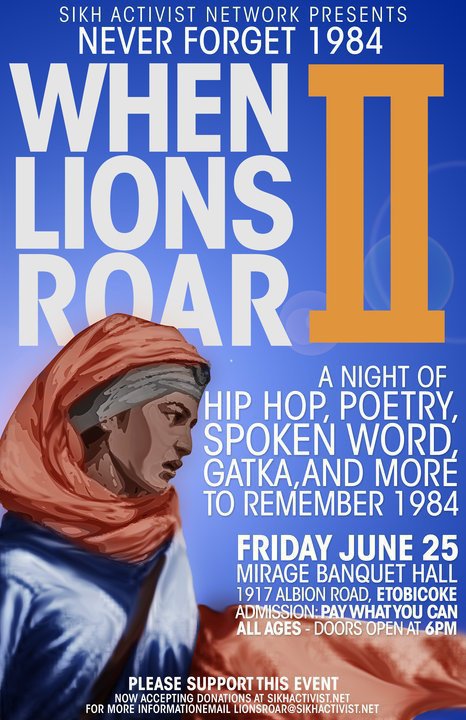 Last year, Maple Leaf Sikh highlighted a revolutionary event which occurred in Toronto and brought together young Sikhs to pay homage to 1984. The event, hosted by the Sikh Activist Network, returns this year and brings together artists such as Hoodini, Mandeep Sethi, Selena Dhillon and Yudh Gatka Akhara and more. For those of you who are dealing with post-Sikh-conference-blues – When Lions Roar II promises to be yet another excellent event bringing together Sikh youth in an impactful way.
Last year, Maple Leaf Sikh highlighted a revolutionary event which occurred in Toronto and brought together young Sikhs to pay homage to 1984. The event, hosted by the Sikh Activist Network, returns this year and brings together artists such as Hoodini, Mandeep Sethi, Selena Dhillon and Yudh Gatka Akhara and more. For those of you who are dealing with post-Sikh-conference-blues – When Lions Roar II promises to be yet another excellent event bringing together Sikh youth in an impactful way.
A Night of Hip Hop, Poetry, Spoken Word, Gatka and More…
To Remember 1984
Friday June 25
Mirage Banquet Hall
Admission: Pay What You Can
All Ages – Doors Open at 6pm
Guestblogged by Brooklynwala
Yesterday morning I was reading the ubiquitous, free “AM New York” newspaper on the subway on the way to a 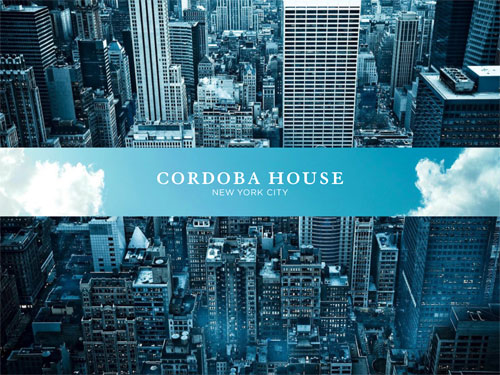 meeting and was disturbed and saddened to learn about a protest of 1,000 people in lower Manhattan against an Islamic Center being built near Ground Zero, the site of the 9/11 attacks. Holding signs with slogans like, “No 9/11 Mega Mosque” and “Don’t dishonor my son’s grave,” these protestors represent the growing backlash against the 13-story community center and mosque being built by the Cordoba Initiative.
meeting and was disturbed and saddened to learn about a protest of 1,000 people in lower Manhattan against an Islamic Center being built near Ground Zero, the site of the 9/11 attacks. Holding signs with slogans like, “No 9/11 Mega Mosque” and “Don’t dishonor my son’s grave,” these protestors represent the growing backlash against the 13-story community center and mosque being built by the Cordoba Initiative.
According to their website, Cordoba “aims to achieve a tipping point in Muslim-West relations within the next decade, bringing back the atmosphere of interfaith tolerance and respect that we have longed for since Muslims, Christians and Jews lived together in harmony and prosperity eight hundred years ago.” The Cordoba Initiative’s proposed Cordoba House located two blocks from Ground Zero “is about promoting integration, tolerance of difference and community cohesion through arts and culture. Cordoba House will provide a place where individuals, regardless of their backgrounds, will find a center of learning, art and culture; and most importantly, a center guided by universal values in their truest form – compassion, generosity, and respect for all.”
A few weeks ago, Tea Party leader Mark Williams, a frequent guest on CNN, stated that “the monument would consist of a Mosque for the worship of the terrorists’ monkey-god.”
Guest blogged by Brooklynwala
 There’s no shortage of reasons why progressives and people who believe in social justice should be gathering together in the US now more than ever. With US wars raging on in Afghanistan, Iraq, and Pakistan, the financial meltdown taking its toll working and poor Americans, and one of the most catastrophic ecological crises in the history of humanity currently destroying Gulf coast, we have a lot of work to do.
There’s no shortage of reasons why progressives and people who believe in social justice should be gathering together in the US now more than ever. With US wars raging on in Afghanistan, Iraq, and Pakistan, the financial meltdown taking its toll working and poor Americans, and one of the most catastrophic ecological crises in the history of humanity currently destroying Gulf coast, we have a lot of work to do.
This June 22-26th, thousands of grassroots activists from around the country will be convening in Detroit, MI for the second United States Social Forum. Building off the World Social Forum process that began in 2001 in Porto Alegre Brazil, the US Social Forum was created with the assumption that in order to change the world, we must change the United States (the belly of the beast, as may of us often refer to our home).
Here is a clip of poet/actor Jessica Care Moore plugging the gathering:

Guest blogged by Brooklynwala
While many of us were celebrating 311 years of the Khalsa at Sikh Day Parades and Nagar Kirtans this weekend, thousands of immigrants and their allies gathered in Phoenix, Arizona on Sunday to protest what is being called the 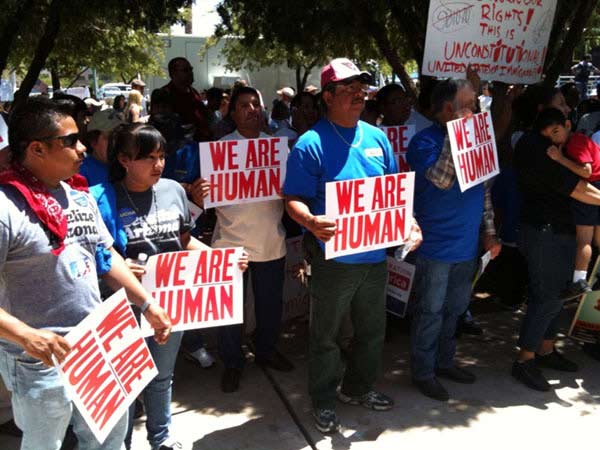 most anti-immigrant legislation in the United States, Senate Bill1070. Signed into law by Arizona Governor Jan Brewer on April 23rd, this measure allows local law enforcement authorities to question individuals based solely upon the suspicion that they may be undocumented.
most anti-immigrant legislation in the United States, Senate Bill1070. Signed into law by Arizona Governor Jan Brewer on April 23rd, this measure allows local law enforcement authorities to question individuals based solely upon the suspicion that they may be undocumented.
According to the New York Times, “The law…would make the failure to carry immigration documents a crime and give the police broad power to detain anyone suspected of being in the country illegally. Opponents have called it an open invitation for harassment and discrimination against Hispanics regardless of their citizenship status.”
President Obama stated that the law threatens “to undermine basic notions of fairness that we cherish as Americans, as well as the trust between police and our communities that is so crucial to keeping us safe.”
Guest blogged by Brooklynwala
A few days ago, a friend sent me this powerful open letter she wrote in order to spark critical thinking and dialogue on the pitfalls of calling the police and relying on the criminal (in)justice system to deal with issues in our neighborhoods and communities. We live in New York City, which has a police force widely known for its excessive use of force and violence, especially against people of color. Sundari recently did a post on the NYPD shooting and killing of a Sikh man in NYC, Satnam Singh, just last week.
In a context in which police by and large cause more harm than get us closer to justice and where the prison system dehumanizes people instead of rehabilitating them, the author of this piece, along with a growing movement around the U.S., are challenging us to think of alternative ways of responding to harm. She states,
“Many of us don’t believe in calling the police. Right now, right here, even before we’ve sufficiently built all the alternative structures for responding to harm. Both in an attempt to create the world we want to live in, and/but also because the impact of prisons and policing is brutal, oppressive, racist, traumatic. We see almost no good coming of it, certainly no transformation, no making things better. We don’t trust police, we don’t think of them as the “good guys,” and we don’t think calling them is going to change anything.”
My friend’s compelling piece “Feeling for the edge of your imagination” got me thinking about what a Sikh approach to justice is. While there is clearly not a simple answer to this question, I tend to think a Gurmukh would place love, forgiveness, rehabilitation, accountability, and recognizing the Divine in all at the center, despite questionable or even horrific actions one has perpetrated. Think about Bhai Kanhaiya Ji’s seva for “enemy” soldiers in need, who saw the injured soldiers’ humanity before he sought vengeance for their attacks against the Sikhs.
I recently heard about an interesting initiative happening in Southern California- a basketball camp for kids, put on by an all Sikh basketball team- the Singh Sensations. [Hat tip: Simrat]
On Saturday March 13, over 100 kids from Los Angeles, Orange County and San Diego gathered to participate in the first ever semi-annual Sikh basketball camp. The camp was held at Khalsa Care Foundation and next door at Pacoima Middle School. Registration began at 9 AM at Khalsa Care Foundation, and by 10 AM, over 100 participants ages 8-18 were stretching and preparing to run basketball drills in the Pacoima Middle School gym.
The camp offered athletic training- the kids ran drills- dribbling, passing, doing layups.
The camp was also part social training- members of the Singh Sensations discussed sportsmanship, teamwork, and how kids should behave on a court.
And finally, the camp was part mentoring on growing up as a Sikh- the Singh Sensations talked about how sports can be used as a metaphor for living as a Sikh. They shared problems had experienced when playing sports in high school and how they had worked through those problems.
Sports are a great way of getting kids together and engaged, and then weaving in topics – like dealing with bullying in the locker room, when growing up Sikh- that might be uncomfortable to talk about otherwise. Sounds like a great initiative!
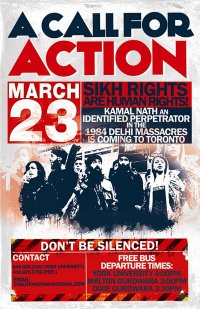 In some countries, those that perpetrate ‘crimes against humanity’ are punished. In India, too often (depending on the political party), the perpetrators are awarded at the ballot boxes or are decorated with cabinet positions. This is the story of Kamal Nath.
In some countries, those that perpetrate ‘crimes against humanity’ are punished. In India, too often (depending on the political party), the perpetrators are awarded at the ballot boxes or are decorated with cabinet positions. This is the story of Kamal Nath.
Kamal Nath is India’s current Union Cabinet Minister of Road Transport and Highways. It was on many of those same roadways in Delhi that Kamal Nath in 1984 personally led thousands of paid goons in the government-sponsored pogroms against the Sikhs. Thousands were bloodily massacred; thousands were raped; many lives destroyed and devastated. Many eyewitnesses have testified that Kamal Nath lead groups to attack the Sikhs seeking shelter at Gurdwara Rakab Ganj (the historic site where the body of Guru Tegh Bahadur was cremated after his shaheedi), killing many Sikhs and destroying the grounds of the Gurdwara.
Ensaaf’s report provides detailed information on Kamal Nath’s leadership and involvement during those dark nights in Delhi. The Sikh Activist Network in Canada (one of the spearhead groups in the coalition) has also prepared a short report, highlighting specific sections written by lead human rights attorney for the Delhi widows – HS Phoolka – in regards to the role of Kamal Nath.
Now, this month he has been invited to Toronto to lecture. As Sikhs, as Canadians, as people of conscious, as humans – we must act now.
Guest blogged by Brooklynwala
This week the South Asian Magazine for Action and Reflection (SAMAR) along with Theaters Against War (THAW), published several letters of support they solicited for Syed Fahad Hashmi, a US citizen who has been held in solitary confinement since May 2007 in the Metropolitan Correctional Center in New York City. That’s right, solitary confinement, debatably a form of torture, for almost 3 years – not at Guantanamo Bay, but in downtown Manhattan. Fahad is awaiting trial and has not been convicted of any crime.
Journalist Chris Hedges wrote, “The case against Hashmi, like most of the terrorist cases launched by the Bush administration, is appallingly weak and built on flimsy circumstantial evidence… If it were a matter of evidence, activists like Hashmi, who is accused of facilitating the delivery of socks to al-Qaida, would probably never be brought to trial.”
I wrote a letter to Fahad last week, which you can read in its entirety below. Check out all the letters published in SAMAR here. To me, there is a deep connection between Fahad’s unjust incarceration and the discrimination and racism we as Sikhs face throughout the world. I hope that more of us get involved in the movement to free Fahad Hashmi and stop the draconian policies of the U.S. government, which continue under President Obama’s leadership.
Amongst the male youth in Punjab, drugs are a serious problem today. With high unemployment rates, and a 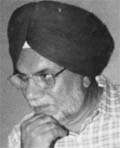 history of violence in the region, the environment is ripe for drug abuse. A Punjab government survey found that one out of three male students use at least a form of tobacco. And on a recent trip to the region, as we were driving between pinds, my relatives pointed out the jeeps, distinctive with their black lights, that carried young drug dealers. The young men sitting inside were all in their teens.
history of violence in the region, the environment is ripe for drug abuse. A Punjab government survey found that one out of three male students use at least a form of tobacco. And on a recent trip to the region, as we were driving between pinds, my relatives pointed out the jeeps, distinctive with their black lights, that carried young drug dealers. The young men sitting inside were all in their teens.
In response, Ajmer Aulakh, a well known Punjabi professor and writer has written a play, “Avesle Yudha Di Nayika” (An Unsung War Heroine), that recently attracted a large audience at the Government College for Boys in Ludhiana.
Aulakh is a noted playwright, artist and winner of Sahitya Akademi Award. He has dedicated his life to theatre and generally works on issues and problems confronting the common man. [TOI]
This much-needed play had students riveted, incorporating Punjabi poetry.
The play highlighted the menace of drugs, delineating how a family loses everything to the evil. Jodha Singh, a villager landlord, is survived by his wife and two children. Satwant Kaur, wife of Jodha Singh, wants their kids to go to school and study, but owing to drugs, the family property is lost. The play portrays the consequent struggle. It depicts how she fights odds to enable her children to continue their studies. The play was performed by artists who are part of Lok Kala Manch and was supported beautifully by Punjabi poetry. [TOI]
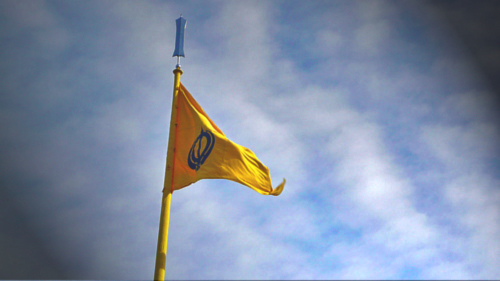 Something remarkable has been happening over the past week. When an earthquake hit Haiti last week, individuals rallied together to raise awareness via facebook updates and email messages to raise funds and send aid to the devastated area.
Something remarkable has been happening over the past week. When an earthquake hit Haiti last week, individuals rallied together to raise awareness via facebook updates and email messages to raise funds and send aid to the devastated area.
In a similar way, the entire Sikh community came together this week to support two Sikh organizations who were competing in the $1 Million Chase Community Giving Campaign. Emails were sent out in support, facebook and twitter updates were constantly being posted, Sikhs were reaching out to each other and also to non-Sikhs to involve them in the process. The potential of building the first Sikh Museum in North America got the global Sikh community excited about the impact a group of committed people can have. Imagine a building dedicated to Sikh history, a place for future generations to pay homage to the deep and meaningful history of the Sikh Qaum. The point is, we no longer have to imagine these dreams. The possibility is real and if we, as a community, can mobilize – there isn’t anything we can’t do.
There is still time to VOTE. All it takes is one click on Facebook to support these initiatives and participate in one of the most notable mobilizations we’ve seen in our community. Voting ends in 24 hours – don’t delay, vote now!
VOTE for Jakara Movement: http://apps.facebook.com/chasecommunitygiving/charities/674186
VOTE for Sikhcess: http://www.sikhcess.org/

